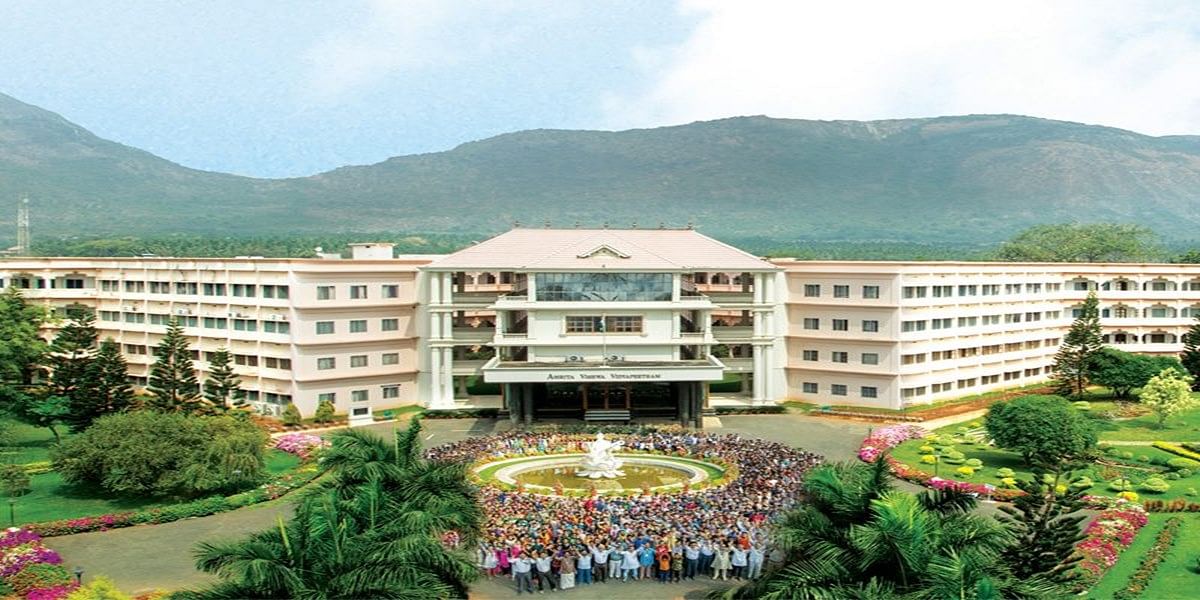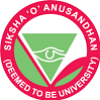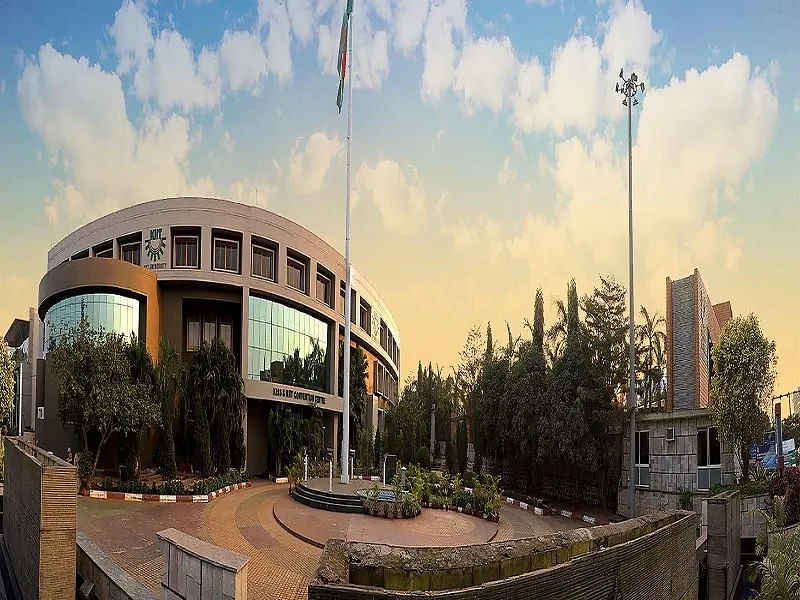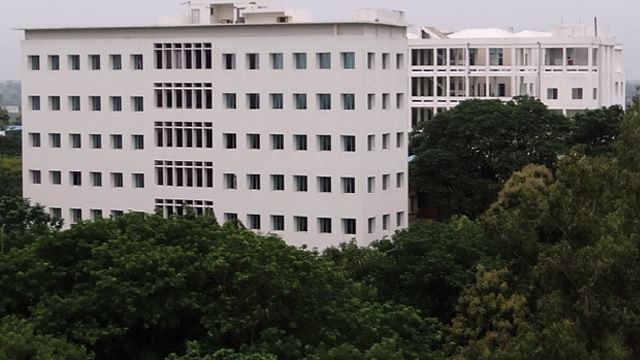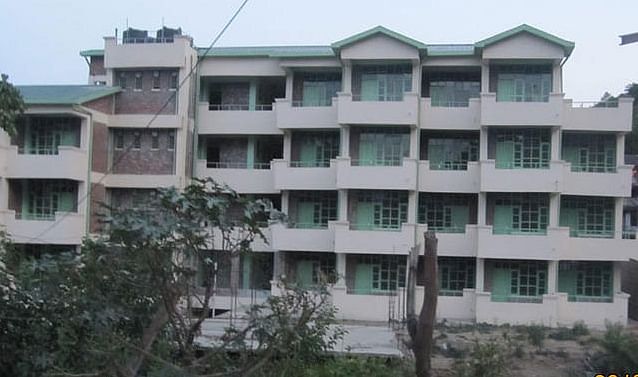B.Tech Data Science Syllabus and Subjects 2026 - Semester Wise

The B.Tech Data Science syllabus is structured over eight semesters and deals with important topics such as Data Engineering, ANN Models, Natural Language Processing, Operating Systems, and more. The B.Tech Data Science course curriculum includes a combination of core subjects, elective offerings, practical subjects, internships, and projects.
The core B.Tech Data Science subjects include fundamental concepts such as Data Analytics, Programming, Data Structures, Knowledge Engineering, etc. The elective subjects focuses on crucial topics such as Advanced Networking, Data Security, Cloud Computing, BlockChain, Deep Learning Algorithms, and more
Table of Contents
B.Tech Data Science Syllabus Semester Wise
The B.Tech Data Science syllabus is based on the recommendations made by the All India Council of Technical Education (AICTE). Therefore, the syllabus of B.Tech Data Science is generally the same across all institutions in India. Certain subjects and elective offerings may differ depending on the colleges.
The semester-wise BTech Data Science syllabus is detailed in the sections below.
B.Tech Data Science Syllabus 1st Year
The BTech Data Science syllabus of the first year focuses on foundational engineering and basic science subjects such as Engineering Mathematics, Engineering Mechanics, Programming, and more.
Listed below is the B.Tech Data Science syllabus for the 1st and 2nd semester:
| Semester I | Semester II |
| Engineering Mathematics-I | Engineering Mathematics-II |
| Engineering Physics-I | Engineering Physics-II |
| Engineering Mechanics | Engineering Chemistry |
| Programming in C/C++ | Programming in Python Language |
| Basic Electrical Engineering | Elements of Mechanical Engineering |
| Communicative English | Environmental Studies |
| Behavioural Science-I | Behavioural Science-II |
| Practical / Lab Work | Practical / Lab Work |
Practical Topics For B.Tech Data Science Syllabus 1st Year
The practical topics for BTech Data Science 1st year syllabus are listed below.
- Engineering Physics Lab
- Engineering Chemistry Lab
- Programming Lab
- Engineering Graphics
B.Tech Data Science Syllabus 2nd Year
The B.Tech in Data Science syllabus for the second year includes topics such as Data Structures, Knowledge Engineering, Networking Methodologies, and more. The BTech Data Science second year syllabus is given in the table below.
| Semester III | Semester IV |
| Statistics | Probability and Random Variables |
| Data Structures and Algorithms | Networking Methodologies |
| Operating Systems | Design and Analysis of Algorithms |
| Database Management | Knowledge Engineering |
| Artificial Intelligence | Data Warehousing and Data Mining / Computer System Architecture and Organization |
| Digital Electronics / Website Design | Practical / Lab Work |
| Practical / Lab Work | - |
Practical Topics for B.Tech Data Science Syllabus 2nd Year
The practical topics for B Tech Data Science second year are given below.
- Data Structures and Algorithms Lab
- Operating Systems with Unix Lab
- DBMS Lab
- Design and Analysis of Algorithms Lab
- Data Communication & Computer Networks Lab
B.Tech Data Science Syllabus 3rd Year
The B.Tech Data Science syllabus for the third year deals with important topics such as Data Analytics, Data Engineering, Artificial Neural Networks, and more. Below listed is the third year B Tech Data Science syllabus.
| Semester V | Semester VI |
| Data Science | Statistical Methods for Data Engineering |
| Artificial Neural Networks | Data Analytics |
| Data Visualization | IoT |
| Pattern Recognition / Advance Networking | Intelligent Information Retrieval |
| Practical / Lab Work | Natural Language Processing / Data Security / Cloud Computing |
| - | Practical / Lab Work |
Practical Topics for B.Tech Data Science Syllabus 3rd Year
The B Tech Data Science Syllabus 3rd year practical topics are given below.
- Artificial Neural Networks Lab
- Machine Learning Laboratory
- Data Visualization Laboratory
- Data Analytics Lab
- Advanced SAS Programming Lab
B.Tech Data Science Syllabus 4th Year
The B.Tech Data Science syllabus of the fourth year includes topics such as Cloud Computing, Machine Learning, Predictive Analytics, and more. Listed below are the B.Tech Data Science 4th year syllabus.
| Semester VII | Semester VIII |
| Software Process | Secure Cloud Computing |
| Predictive Analytics | Applied Machine Learning |
| IoT Architecture and Protocol / Statistics for Business Analytics | Digital Image Processing |
| BlockChain / Deep Learning Algorithm and Architectures | Practical / Lab Work |
| Practical / Lab Work | Project |
Practical Topics for B.Tech Data Science Syllabus 4th Year
Listed below are the B.Tech Data Science practicals topics for the 4th year syllabus.
- Model Deployment Lab
- Soft Computing in MATLAB Lab
- Digital Image Processing Lab
B.Tech Data Science Subjects
The B.Tech Data Science subjects comprises theoretical and practical coursework that aims to equip students with an extensive knowledge of the important concepts within the field of data science.
The availability of subjects may differ based on the colleges, however, the common subjects followed by most institutions offering B.Tech in Data Science is detailed in the sections below.
BTech Data Science Subjects First Year
The B Tech Data Science subjects in the first year focus on topics such as Force Systems, Programming in C, C++, and Python, Engineering Mathematics, and more. The first year B.Tech Data Science subjects are given in the table below.
| Subjects | Topics Covered | Subject Type |
| Engineering Mathematics-I | Differential Calculus, Integral Calculus, Ordinary Differential Equations, Vector Calculus | Core |
| Engineering Physics-I | Oscillations & Waves, Plane Progressive Waves, Ultrasonics, Wave Nature of Light, Diffraction, Electromagnetics | |
| Engineering Mechanics | Force System & Structure, Friction, Distributed Force, Pappus Theorems, Work-Energy, D’alembert Principle | |
| Programming in C/C++ | von-Neumann Architecture, Variable, Constants, Data Types in C, Expressions, C Statements, Concepts of Loops, Arrays, Functions, Pointers | |
| Basic Electrical Engineering | Basic Electrical Quantities, Network Analysis Techniques & Theorems, Alternating Current Circuits, Transformers | |
| Engineering Mathematics-II | Linear Algebra, Gauss Elimination Method, Infinite Series, Complex Analysis, Uniform Convergence, Statistics and Probability | |
| Engineering Physics-II | Special Theory of Relativity, Wave Mechanics, Atomic Physics, Solid State Physics | |
| Engineering Chemistry | Water Technology, Fuels, Instrumental Methods of Analysis, Lubricants, Corrosion | |
| Programming in Python Language | Python Basics, Data Structures, Strings and Functions, OOPs Concepts and Working With Data, Modules and Packages | |
| Elements of Mechanical Engineering | Thermodynamics, Carnot Cycle, Stress And Strain Analysis, Casting & Forging, Welding & Sheet Metal Working | |
| Communicative English | Vocabulary, Communication, Communication Skills, Written English | |
| Environmental Studies | Natural Resources, Ecosystems, Biodiversity Conservation, Environmental Pollution, Social Issues and Environment | |
| Behavioural Science-I | Core Competency, Techniques of Self Awareness, Self Esteem & Effectiveness, Building Positive Attitude, Building Emotional Competence | |
| Behavioural Science-II | Problem Solving Process, Plan of Action, Creative Thinking | |
| Engineering Physics Lab | Newton’s Ring Method, Spectrometer, Polarimeter, Diffraction Methods, Thomson Method, Sonometer | Laboratory/Practical |
| Engineering Chemistry Lab | Ion Exchange Capacity, Complexometric Titration Methods, Drop Number Method, Determination of Properties of Chemical Compounds | |
| Programming Lab | Cosine Series, Fibonacci Series, User Defined Function Calls, File Handling, Use of Tuple Data Type, Python Program Flow Control | |
| Engineering Graphics | Projections of Point and Lines, Projections of Plane Figures, Projection of Solids, Development of Surface |
B.Tech Data Science Subjects Second Year
The Data Science BTech syllabus of the second year focuses on advanced subjects such as Data Structures, Operating Systems, Algorithm Design, Knowledge Representation, etc.
Below listed is the B.Tech Data Science subjects second year:
| Subjects | Topics Covered | Subject Type |
| Statistics | Statistical Methods, Measures of Central Tendency, Measures of Dispersion, Bivariate Data, Rank Correlation, Index Numbers | Core |
| Data Structures and Algorithms | Stacks and Queues, Linked Lists, Trees, Application of Binary Trees, Sorting and Hashing, Graph Search, Traversal Algorithm | |
| Operating Systems | Functions, Structure, Operating System Services, Process Management, Memory Management, Device Management, File System, Protection, Security | |
| Database Management | Type of Data Models, E–R Modeling, Relational Data Model, Database Design, Query & Transaction, Crash Recovery | |
| Artificial Intelligence | Introduction to AI, LISP, PROLOG, Knowledge Representation, Reasoning Under Uncertainty, Planning & Learning, NLP Rule Based Systems Architecture | |
| Probability and Random Variables | Axioms of Probability, Two Dimensional Random Variables & Estimation, Testing of Hypothesis, Multivariate Analysis | |
| Networking Methodologies | Data Communications, Data Link Layer, Network Layer, Transport Layer, Application Layer | |
| Design and Analysis of Algorithms | Algorithm Design, Divide and Conquer, Greedy Method, Dynamic Programming, Graph Searching, Traversal, Computational Complexity | |
| Knowledge Engineering | Problems and Search, Knowledge Representation, Learning, Conncetionist Models, Expert System | |
| Digital Electronics | Boolean Functions, Combinational Circuits, Sequential Circuits, Logic Families, Data Converters | Elective |
| Website Design | Overview of Internet, Principles of Web Design, HTML Tags, CSS in HTML, Java Script | |
| Data Warehousing and Data Mining | On Line Analytical Processing, OLAP Tools, Architectural Strategies, Organization Issues, Data Mining Approaches, Methods, Decision Trees, Neural Networks | |
| Computer System Architecture and Organization | Register Transfer Language, Basic Computer Organizations and Design, CPU, Memory and Intrasystem Communication, Pipelining | |
| Data Structures and Algorithms Lab | Practical Application of Sorting and Searching Algorithm and Data Structures | Laboratory/Practical |
| Operating Systems with Unix Lab | UNIX Commands, VI Editor, Shell Script, Programming in C Shell | |
| DBMS Lab | Database Design, Data Definition (SQL), Data Retrieval (SQL), Data Modification (SQL), Views Triggers and Procedures, PLSQL | |
| Design and Analysis of Algorithms Lab | Implementation of Sorting Algorithm, BFS and DFS Implementation, Divide and Conquer Implementation of Maximum Subarray Sum | |
| Data Communication & Computer Networks Lab | Introduction and Installation of Linux, Administrating Linux, Setting up a Local Area Network, Print Server, File Server, Mail Server, FTP Server, Web Server, MySQL Database Server |
B.Tech Data Science Subjects Third Year
The BTech in Data Science syllabus of the third year deals with important subjects such as Data Visualization, Pattern Recognition, Advanced Networking, and more. Below listed are the B.Tech Data Science third year subjects and the topics covered under them.
| Subjects | Topics Covered | Subject Type |
| Data Science | Big Data and Data Science, Hypothesis Testing, Data Preprocessing, Basic Machine Learning Algorithms, Clustering, Data Visualisation | Core |
| Artificial Neural Networks | ANN Models, Single Layer Perception Classifier, Multi-layer Feed Forward Networks, Associative Memories | |
| Data Visualization | Data Abstraction, Scalar and Point Techniques, Visual Variables, R-Basics, Time Series Data Visualisation, Choropleth Map | |
| Statistical Methods for Data Engineering | Random Variables, Correlation, Probability Distributions, Hypothesis Testing, Reliability | |
| Data Analytics | Types, Phases, EDA, Visualising Numerical Data, Graphing Systems, Analytics, Machine Learning, Ethics | |
| IoT | Introduction, Sensors, Communications Criteria, Data & Analytics for IoT, IoT Physical Devices and Endpoints | |
| Intelligent Information Retrieval | Overview of IR Systems, Statistical Characteristics of Text, Regular Expressions, Similarity Measures and Ranking, Web Search Basics, Web Mining | |
| Pattern Recognition | Basics of Probability, Bayes Decision Theory, Sequential Pattern Recognition, Nonparametric Techniques for Density Estimation, Linear Discriminant Functions | Elective |
| Advanced Networking | TCP/IP Protocol, Connection Oriented Networks, High Speed LAN, Wireless Communication, Network Analysis and Modelling | |
| Natural Language Processing | Introduction to NLP, Language Modeling, Word Sense Disambiguation, Markov Model and POS Tagging, Syntax and Semantics | |
| Data Security | Symmetric (Private) & Asymmetric (Public) Key Cryptographic Systems, Steam Ciphers, Block Ciphers, Digital Signatures | |
| Cloud Computing | Systems Modeling, Clustering, Virtualization, Virtual Machines, Cloud Platform Architecture, Cloud Programming, Storage Systems | |
| Artificial Neural Networks Lab | Parallel and Distributed Processing, Perceptron Learning, Hopfield Model, Self Organising Maps | Laboratory/Practical |
| Machine Learning Laboratory | FIND-S Algorithm, Candidate-Elimination Algorithm, Bayesian Classifier, EM Algorithm | |
| Data Visualization Laboratory | Statistical Analysis, Financial Analysis, Market-Based Data Analysis Visualisation, Text Visualisation Using Web Analytics | |
| Data Analytics Lab | R Tool, K-means Clustering, Association Rules, Linear Regression, Logistics Regression, Decision Trees, Singular Value Decomposition | |
| Advanced SAS Programming Lab | PRINT Procedure, Proc Table, Proc Report, Output Delivery System |
B.Tech Data Science Subjects Fourth Year
The B.Tech Data Science subjects in the fourth year covers topics such as Time Series Analysis, Deep Learning, Digital Image Processing, and more. The B.Tech Data Science subjects of the fourth year are listed below.
| Subjects | Topics Covered | Subject Type |
| Software Process | Problem Solving, Scope of AI, Knowledge Representation, Understanding Natural Languages, Expert System, Robotics | Core |
| Predictive Analytics | Principles and Techniques, Regression Models, Classification Models, Time Series Analysis | |
| Secure Cloud Computing | Security Concepts, Information Storage Security & Design, Information Availability Design, Legal and Compliance Issues | |
| Applied Machine Learning | Machine Learning Basics, Introduction to Deep Learning, Training Neural Networks, Sequence Modelling, Auto Encoders, DGM | |
| Digital Image Processing | Digital Image Fundamentals, Image Enhancement in the Spatial Domain, Image Enhancement in the Frequency Domain, Image Restoration | |
| IoT Architecture and Protocol | The IoT Architectural Reference Model, IoT Reference Architecture, Application Protocols for IoT | Elective |
| Statistics for Business Analytics | Business Intelligence, Descriptive Analytics, Predictive Analytics, Text Analytics, Sentiment Analysis | |
| Block Chain | Cryptography and Blockchain, BitCoin and Cryptocurrency, Ethereum, Hyperledger, Blockchain Applications | |
| Deep Learning Algorithm and Architectures | FeedForward Neural Networks, Backpropagation, Gradient Descent (GD), Autoencoders, Greedy Layer Wise Pre-training, Recurrent Neural Networks | |
| Model Deployment Lab | CAPTCHA Application, Calculator Application, Timer, Weather Forecasting Application, React | Laboratory/Practical |
| Soft Computing in MATLAB Lab | MATLAB, ID3 Algorithm, Back Propagation Algorithm, Bayesian Classifier Model, EM Algorithm | |
| Digital Image Processing Lab | Image Representation, Image transformation, Image Enhancements, Edge Detection, Morphological Image processing and Segmentation |
BTech Data Science Course Structure
The course structure for B.Tech Data Science includes a blend of core courses, elective offerings, practicals and internships providing a comprehensive learning experience. The B.Tech Data Science course structure is outlined below:
- VIII Semesters
- Core Subjects
- Elective Subjects
- Practicals
- Internships
- Project
- Viva Voce
B.Tech Data Science Teaching Methodologies and Techniques
The BTech Data Science course employs different methods and techniques of teaching to provide students with an extensive understanding of the syllabus. Below listed are the BTech Data Science teaching methodologies and techniques used in the curriculum.
- Lectures
- Laboratory
- Group Discussions
- Case Studies
- Workshops
- Guest Lectures
- Industrial Visits
B.Tech Data Science Projects
Projects are an integral part of the curriculum enabling students to apply their theoretical knowledge into practical applications. Below listed are some of the popular project topics for BTech Data Science students.
- Develop predictive models to forecast stock prices, weather patterns, or customer churn.
- Analyse sentiment in social media data to understand customer sentiment using NLP techniques.
- Build a deep learning model to classify images into different categories.
- Develop a fraud detection system for financial transactions using anomaly detection algorithms.
- Segment customers based on their behaviour, demographics, or preferences using clustering algorithms to personalise marketing campaigns.
B.Tech Data Science Books
The B.Tech Data Science books help students understand the complex concepts and topics by providing detailed explanations, examples, and more. Students can refer to the B.Tech Data Science books provided in the sections below.
B.Tech Data Science Books 1st Year
The B.Tech Data Science books in the first year deal with foundational concepts of engineering and basic science such as engineering mathematics, engineering mechanics, engineering graphics, etc.
Below listed are the B.Tech Data Science first year books.
| Books | Authors | Topics Covered |
| Engineering Mechanics | S.S. Bhavikatti | Statics of Particles, Distributed Forces, Friction, Kinematics |
| Computer Programming in C | V. Raja Raman | Control Structures, Arrays and Strings, Pointers, File Processing |
| Python Programming: An Introduction to Computer Science | John Zelle | Basic Python Syntax, Functions, Lists and Tuples, File Input and Output |
| C Programming Language | Kernighan & Ritchie | Operators, Expressions, Looping, Structures, Unions, File Handling |
B.Tech Data Science Books 2nd Year
The B.Tech Data Science books 2nd year focuses on topics such as data structures, operating systems, networking methodologies, etc. The B.Tech Data Science second year books are listed below.
| Books | Authors | Topics Covered |
| Data Structures and Program Design In C | Robert L. Kruse and Bruce P. Leung. | Data Structures, Arrays, Trees, Graphs, Sorting, Search Algorithm |
| Operating System Concepts | A. Silberschatz and P.B. Galvin | Process Management, File Systems, Distributed Systems, Security |
| Principles of Database Systems | J.O. Ullman | Database Design, ER Diagrams, Relational Model, SQL, Query Optimisation |
| Artificial Intelligence with Python | J. Prateek | Problem Solving & Search Algorithm, Machine Learning, NLP, Neural Networks |
B.Tech Data Science Books 3rd Year
The B.Tech Data Science 3rd year books cover important topics such as data science, ANN, data engineering, data analytics, and more. The third year BTech Data Science books are given in the table below.
| Books | Authors | Topics Covered |
| Data Mining and Analysis | Mohammed J. Zaki and Wagner Miera Jr | Data Preprocessing, Association Analysis, Clustering, Network Analysis |
| Artificial Neural Networks | B. Vegnanarayana | Perceptrons, Multilayer Feedforward Networks, Backpropagation Algorithm, Hopfield Networks |
| Internet of Things: Architecture and Design Principles | Raj Kamal | IoT Architecture, IoT Device Management, Security and Privacy, Platforms and Frameworks |
| Foundations of Natural Language Processing | Christopher D. Manning and Hinrich Schutze | Text Preprocessing, Text Classification, Syntax and Parsing, Semantic Analysis |
B.Tech Data Science Books 4th Year
The fourth year B.Tech Data Science books deal with important topics such as predictive analytics, cloud computing, machine learning, digital image processing, etc. Listed below are the BTech Data Science books for the fourth year.
| Books | Authors | Topics Covered |
| Business Intelligence and Analytics | Efraim Turban, Ramesh Sharda, Dursun Delen | Data Warehousing, Data Mining Techniques, Business Performance Management, Big Data Analytics |
| Cloud Computing for Programmers | Daniele Casal | Cloud Service Models, Cloud Deployment Models, Virtualisation, Cloud Security |
| Fundamental of Digital Image Processing | A.K. Jain | Image Enhancement Techniques, Color Image Processing, Image Segmentation |
| Predictive Analytics Using R | Jeffrey Strickland | EDA, Regression Analysis, Clustering Algorithms, Time Series Analysis |
Top B.Tech Data Science Colleges
Top Engineering Entrance Exams
B.Tech Data Science Fee Structure
FAQs on B.Tech Data Science Syllabus and Subjects
Q: Is there coding in BTech Data Science syllabus?
Q: What are the core B.Tech Data Science subjects?
Q: What is the hardest subject in the syllabus of B.Tech Data Science?
Q: What are the elective subjects in B.Tech Data Science?
Q: What software tools are commonly used in the field of B.Tech Data Science?
Q: How are the students evaluated in the B.Tech Data Science course?
Q: Where to find the BTech Data Science subjects list and syllabus?
